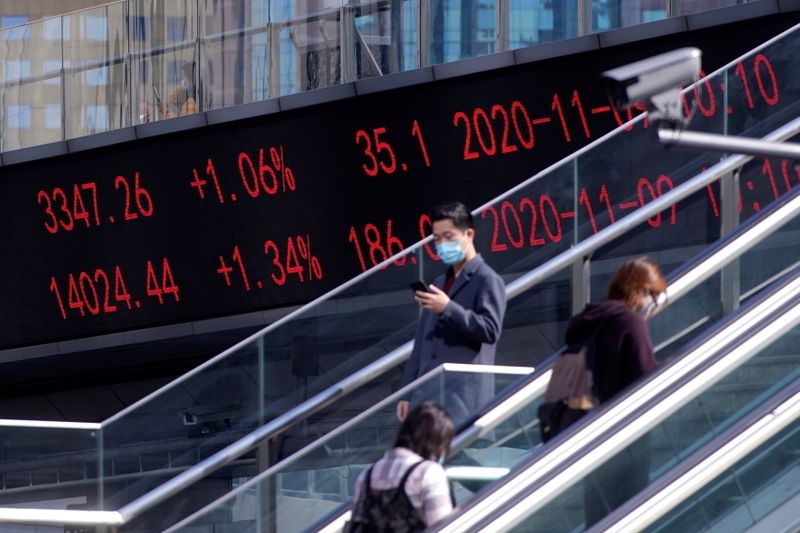This post was originally published on this site

Chinese stocks were by far the worst performers for the day, given that a smaller-than-expected rate cut from the People’s Bank of China (PBOC) signals limited policy support for the economy.
Losses spilled over into most regional markets, with most China-exposed stocks trading lower.
Asian stocks were also nursing steep losses from the prior week amid growing concerns over higher U.S. interest rates, with focus now turning to the Jackson Hole Symposium later this week.
China’s Shanghai Shenzhen CSI 300 and Shanghai Composite indexes fell 0.4% and 0.3%, respectively, while Hong Kong’s Hang Seng index fell 0.8%.
The PBOC cut its one-year loan prime rate (LPR) by 10 basis points, while the five-year rate, which is used to determine mortgage costs, was left unchanged. Analysts had forecast an at least 15 basis point cut in both rates.
The move indicated that Asia’s largest economy has limited headroom to keep loosening monetary policy, which bodes poorly for the country as it struggles with a slowing post-COVID recovery.
The LPR was already at its lowest level seen in data dating back to 2013, after a series of cuts over the past year.
Still, losses in Chinese stocks were somewhat limited by the China Securities Regulatory Commission proposing more steps to stabilize the stock market. Chinese indexes were trading close to their weakest levels for the year.
Beleaguered real estate developer Country Garden Holdings (HK:2007) rose nearly 3%, although its shares remained close to record lows hit last week.
Losses in China spilled over into Australia’s ASX 200 index, which fell 0.1%.
On the other hand, Japan’s Nikkei 225 index rose 0.9%, as it recovered from steep losses logged last week. South Korea’s KOSPI also added 0.6%, while futures for India’s Nifty 50 index pointed to a flat open.
Markets were also on edge ahead of more cues from the Jackson Hole Symposium later this week, especially after recent data showed that U.S. inflation rose and the labor market remained tight.
The Federal Reserve also recently signaled that it was still considering higher interest rates this year, with analysts steadily tapering their expectations for any chances of a rate cut in 2023.
The prospect of higher U.S. rates spurred steep losses in most Asian stocks last week, and is expected to continue dampening regional sentiment for the time being.


